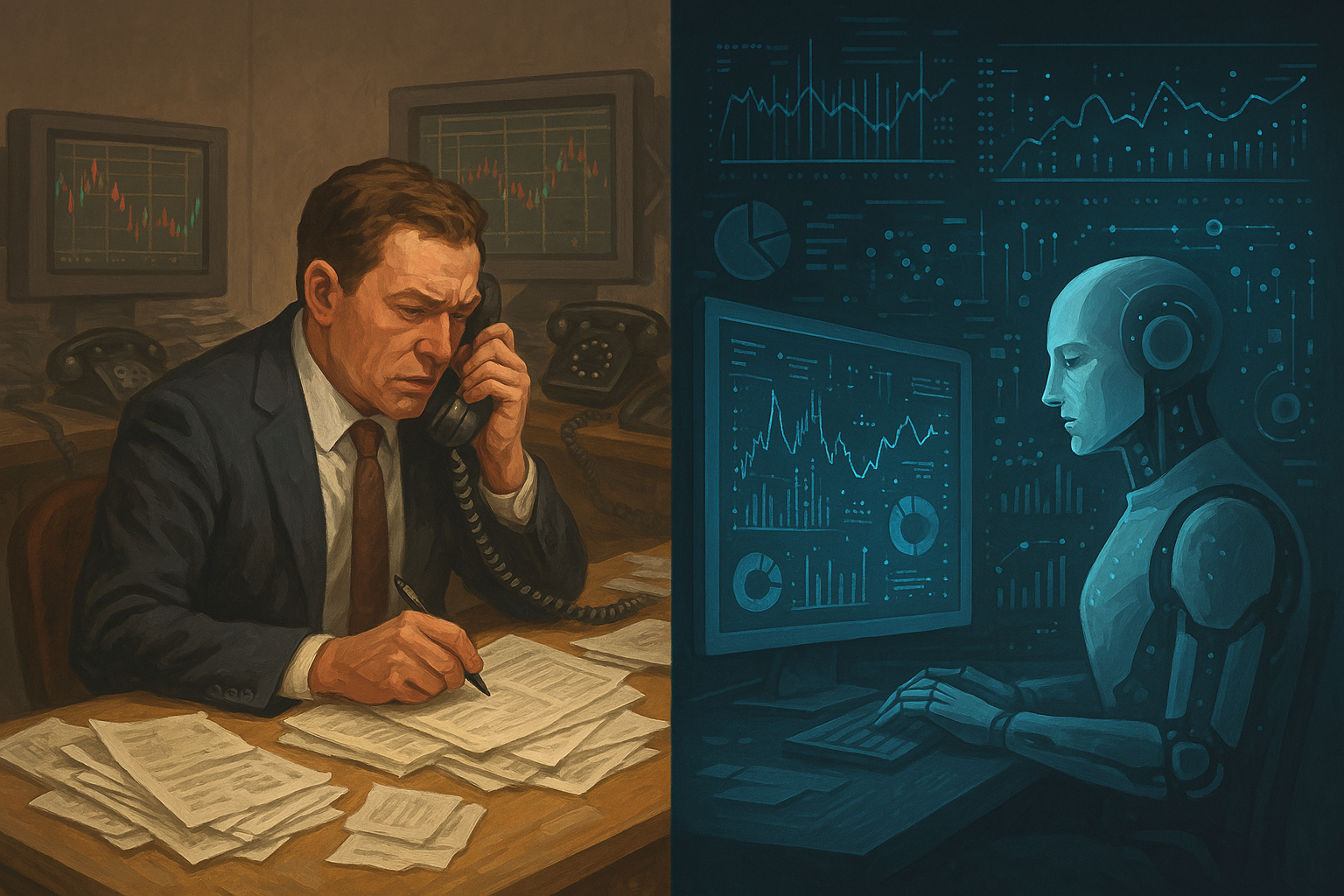Series Article: Financial Positions – From Bankers to Stockbrokers: Is AI Friend or Foe?
Identifying the Role
Bankers, Stockbrokers, Financial Advisors, and Analysts all play a critical role in managing money — whether personal, corporate, or national. Their day-to-day involves:
- Assessing risk
- Analyzing markets and financial instruments
- Managing portfolios
- Recommending investments
- Ensuring compliance
- Guiding decisions using historical and predictive models
These positions rely on trust, expertise, timing, and access to information. But what happens when AI has better access, better timing, and no emotional bias?
What AI Brings to the Table
1. Real-Time Market Analysis
AI can process millions of data points per second — news reports, social signals, historical trends, macroeconomic indicators — and make trades faster than any human. Already, over 70% of market trades are algorithmic.
2. Predictive Financial Modeling
AI can predict market swings, corporate performance, or currency fluctuations by constantly updating its models. Human analysts might need hours — AI can do it in milliseconds, improving decision-making under uncertainty.
3. Automated Portfolio Management
Robo-advisors are already replacing low-level advisors by offering algorithm-driven portfolio management with low fees. AI can rebalance investments based on pre-set goals, risk appetite, and global events.
4. Fraud Detection & Compliance
AI excels at spotting unusual patterns, flagging potential fraud, and maintaining compliance in heavily regulated environments. It can audit documents, scan transactions, and monitor behavior better than a team of compliance officers.
5. Emotional Bias Elimination
Human brokers and bankers make emotional decisions, especially under stress or pressure from clients or bosses. AI has no ego, no ambition, no need for commissions. It simply optimizes.
The Flawed Human Element
Let’s be honest: not all financial professionals are working purely for their clients. Some chase bonuses, manipulate products, or overpromise. Ego and politics play a role.
- The ambitious broker who overtrades to meet a target
- The advisor who pushes high-fee products
- The banker who approves loans based on relationships rather than risk
AI neutralizes these biases. It doesn’t have a career ladder to climb, or a quarterly bonus to secure.
Friend or Foe?
AI as a Friend:
- For the average consumer, AI offers low-cost access to financial tools previously reserved for the wealthy.
- For honest financial professionals, AI is a supercharged assistant, helping with research, calculations, and risk detection.
AI as a Foe:
- For those who gatekeep financial knowledge, AI is an existential threat.
- For outdated institutions clinging to legacy models, AI exposes inefficiencies and undermines their control.
Replacement vs. Augmentation
Will AI replace all financial roles? Not immediately — but many mid-tier roles (basic analysis, client onboarding, compliance) are already being automated.
The survivors will be:
- High-trust advisors offering judgment, ethics, and strategy
- AI-savvy professionals who can ask better questions of their AI tools
- Niche experts in geopolitics, law, or specific asset classes who can guide AI-driven insights
Conclusion: Let the Financial Class Beware
AI doesn’t play politics. It doesn’t inflate housing bubbles for campaign donors. It doesn’t ignore systemic risk because the party’s too profitable. If let loose, AI will rip through every shady deal and backroom handshake the financial world has tolerated for decades.
In the end, AI could be the great equalizer, making financial advice, investment opportunities, and risk management available to everyone — not just the 1%.
But make no mistake: for the traditional gatekeepers of money, AI is not just a tool. It’s a reckoning.

